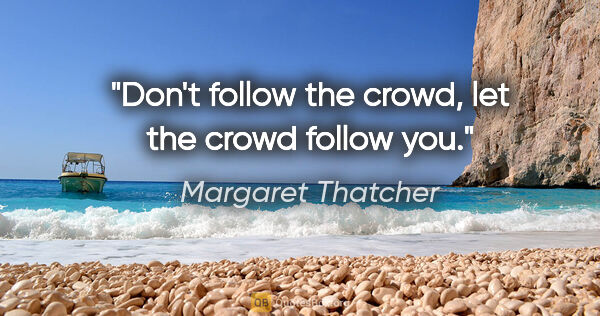Following The Crowd Quotes
The things we see," Pistorius said softly, "are the same things that are within us. There is no reality except the one contained within us. That is why so many people live such an unreal life. They take the images outside them for reality and never allow the world within to assert itself. You can be happy that way. But once you know the other interpretation you no longer have the choice of following the crowd. Sinclair, the majority's path is an easy one, ours is difficult.
Herman Hesse
The dragonets found the carpenters to be even more fascinating than the furniture, and followed the poor men from pen to pen, crowding around to watch, tasting the wooden planks, trying to steal the tools. It made for an interesting day for everyone, as the boys tried to keep the dragonets away from the carpenters, and the dragonets tried to get at the carpenters, and the carpenters worked probably a great deal faster than they ever had in their lives, sure that the dragonets would go from...
Mercedes Lackey
Our hero's unreasoning rage was fed by a not unreasonable jealousy. It was clear to him that Zuleika had forgotten his existence. To-day, as soon as he had killed her love, she had shown him how much less to her was his love than the crowd's. And now again it was only the crowd she cared for. He followed with his eyes her long slender figure as she threaded her way in and out of the crowd, sinuously, confidingly, producing a penny from one lad's elbow, a threepenny-bit from between...
Max Beerbohm
Man is made of dirt - I saw him made. I am not made of dirt. Man is a museum of diseases, a home of impurities; he comes to-day and is gone tomorrow; he begins as dirt and departs as stench; I am of the aristocracy of the Imperishables. And man has the Moral Sense. You understand? He has the Moral Sense. That would seem to be difference enough between us, all by itself."I know your race. It is made up of sheep. It is governed by minorities, seldom or never by majorities. It suppresses its...
Mark Twain
To the untutored sage, the concentration of population was the prolific mother of all evils, moral no less than physical. He argued that food is good, while surfeit kills; that love is good, but lust destroys; and not less dreaded than the pestilence following upon crowded and unsanitary dwellings was the loss of spiritual power inseparable from too close contact with one's fellow-men.
Charles Alexander Eastman







